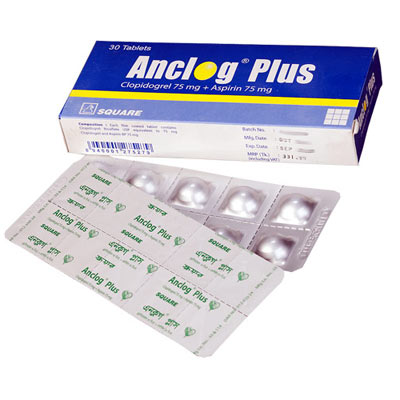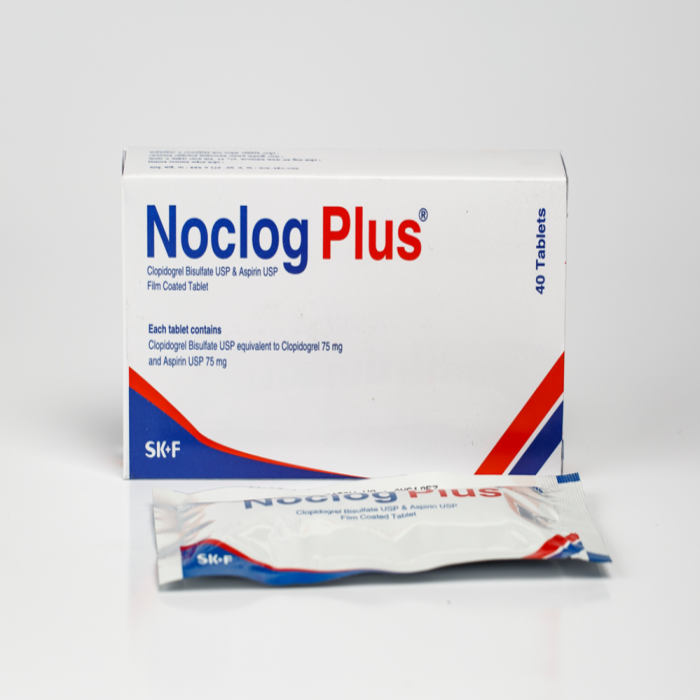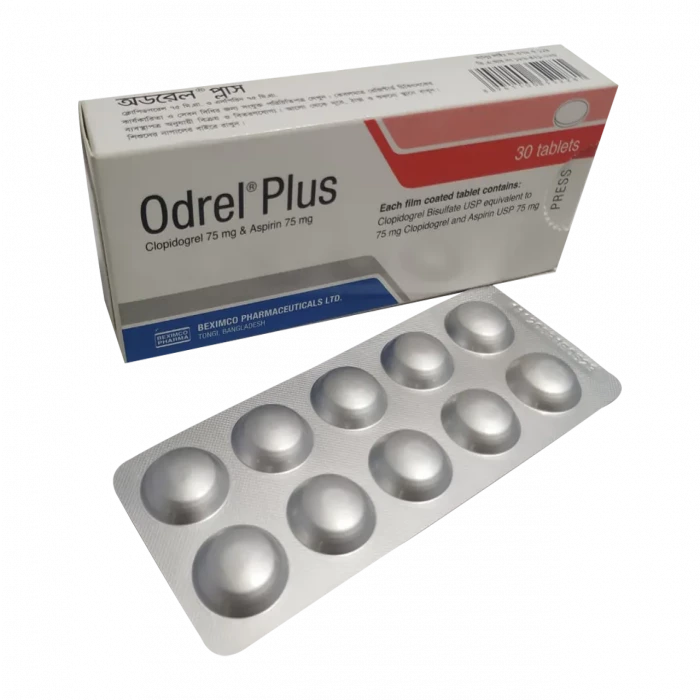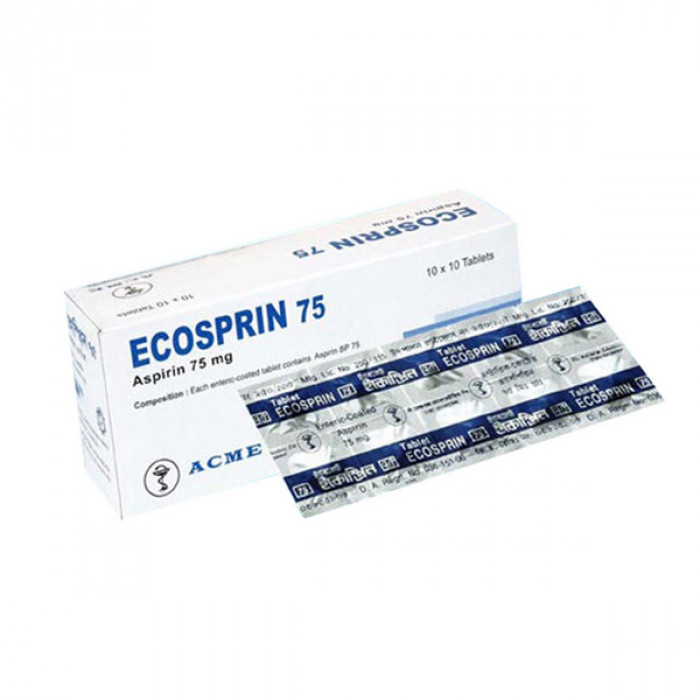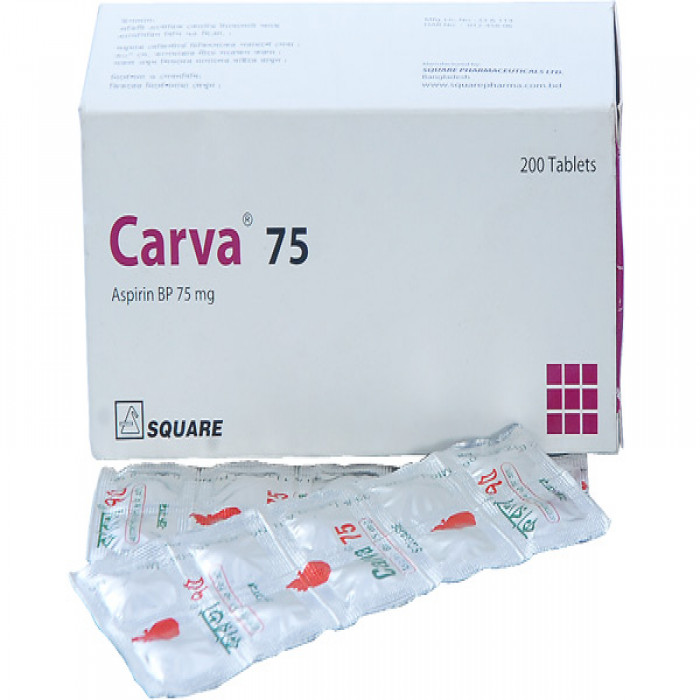
✔ 100% Authentic Product
👁️ Currently Viewing 11294
- An antiplatelet drug called Carva 75mg Tablet is used to manage and avoid heart attacks, strokes, and chest discomfort associated with the heart. (angina). It aids in preventing blood blockages from forming in your blood arteries. It is a drug that is very frequently used to safeguard the heart.
- It is typically recommended to take Carva 75mg Tablet with meals to avoid stomach distress. The purpose for which you are taking it and how well it relieves your symptoms will determine the appropriate dosage for you. You should consume it as your doctor has advised.
Discount
Price: ৳ 11
MRP:
৳
12
5%
Off

100% Genuine Products, Guaranteed

Safe & Secure Payments, Always

Fast, Secure & Efficient Delivery

Proper Packaging
 Cash on Delivery - All over Bangladesh
Cash on Delivery - All over Bangladesh Regular Delivery - 12-24 Hours, Dhaka City* Charge Tk.39-59
Regular Delivery - 12-24 Hours, Dhaka City* Charge Tk.39-59 Regular Delivery - 24-48 Hours, Other Cities* Charge Tk.99-110
Regular Delivery - 24-48 Hours, Other Cities* Charge Tk.99-110
🌙 রমযান অফার 🌙
 ফ্রি ডেলিভারিঃ - ৭৯৯ টাকা+ অর্ডারে, ঢাকা
শহরে
ফ্রি ডেলিভারিঃ - ৭৯৯ টাকা+ অর্ডারে, ঢাকা
শহরে ফ্রি ডেলিভারিঃ - ২৭৯৯ টাকা+ অর্ডারে, ঢাকার
বাহিরে
ফ্রি ডেলিভারিঃ - ২৭৯৯ টাকা+ অর্ডারে, ঢাকার
বাহিরে
📲 মোবাইল অ্যাপ অর্ডারে সাশ্রয় বেশী
-
Google Play Store থেকে ডাউনলোড
-
Apple Store থেকে ডাউনলোড
100% Genuine Products, Guaranteed
Safe & Secure Payments, Always
Fast, Secure & Efficient Delivery
Proper Packaging
 Cash on Delivery - All over Bangladesh
Cash on Delivery - All over Bangladesh Regular Delivery - 12-24 Hours, Dhaka City* Charge Tk.39-59
Regular Delivery - 12-24 Hours, Dhaka City* Charge Tk.39-59 Regular Delivery - 24-48 Hours, Other Cities* Charge Tk.99-110
Regular Delivery - 24-48 Hours, Other Cities* Charge Tk.99-110 ফ্রি ডেলিভারিঃ - ৭৯৯ টাকা+ অর্ডারে, ঢাকা
শহরে
ফ্রি ডেলিভারিঃ - ৭৯৯ টাকা+ অর্ডারে, ঢাকা
শহরে ফ্রি ডেলিভারিঃ - ২৭৯৯ টাকা+ অর্ডারে, ঢাকার
বাহিরে
ফ্রি ডেলিভারিঃ - ২৭৯৯ টাকা+ অর্ডারে, ঢাকার
বাহিরে- Google Play Store থেকে ডাউনলোড
- Apple Store থেকে ডাউনলোড
🌙 রমযান অফার 🌙
📲 মোবাইল অ্যাপ অর্ডারে সাশ্রয় বেশী
✅ Description:
Anti-inflammatory, blood-thinning, and antiplatelet drugs are a group that includes Carva 75 Tablet. The power determines how it is used. Carva 75 Tablet works as a blood-thinning or antiplatelet agent used to avoid heart attack and stroke in a modest dosage (about 75 milligrams). As an analgesic, however, it works at large doses (about 325 milligrams) to reduce mild aches, pains, and fevers. Immediately following a heart attack, your doctor may also recommend Carva 75 Tablet to stop additional clots and cardiac muscle mortality. The basic definition of a heart attack is a blood flow obstruction caused by clogged arteries. Plaque, a buildup of fat, cholesterol, and other compounds in streets, is what's causing this obstruction.
In low doses, Carva 75 functions as a blood thinner to prevent problems from blood clots in the heart, and high doses, it serves as an analgesic or pain reliever. Through its anti-platelet action, Carva 75 contributes significantly to blood thinning, lowering the chance of blood clot development and eventual heart attack. Aspirin taken at a low dosage thins the blood, reducing the chance of heart attack and stroke. Additionally, it blocks the production of prostaglandins (PGs) and cyclooxygenase (COX), which are responsible for inflammation, swelling, discomfort, and temperature.
Safety Advices

Alcohol
UNSAFE
Do not use Carva 75 while consuming alcohol.

Pregnancy
CONSULT YOUR DOCTOR
Using Carva 75 during pregnancy is not safe, as there is clear evidence of a risk to the developing baby. It is essential to consult your doctor.

Breastfeeding
CONSULT YOUR DOCTOR
There is a likelihood that using Carva 75 while breastfeeding may be unsafe. The drug may pass into the breastmilk, causing harm to the baby, as indicated by limited human data.

Driving
UNSAFE
Carva 75 Tablet has some side effects which may affect your driving. Do not drive if you feel sleepy and dizzy.

Kidney
CAUTION
The use of Carva 75 should be approached with caution in patients with kidney disease. However, in patients with severe kidney disease, it is not recommended.

Liver
CAUTION
Patients with liver disease should use Carva 75 with caution. In patients with severe liver disease, the use of Carva 75 is not recommended.
✔️ Uses of Carva 75 Tablet
- Heart attack
- Stroke
- Angina (heart-related chest pain)
✔️ Side Effects of Carva 75 Tablet
- Heartburn
- Increased bleeding tendency
- Nausea
- Acid or sour stomach
- Drowsiness
- Irritability
- Upset stomach
- Vomiting
✔️ How Carva 75 Tablet works
Non-steroidal anti-inflammatory medication (NSAID) Carva 75 has an anti-platelet effect. It functions by stopping platelets from adhering to one another, which reduces the development of dangerous blood clots. The risk of a heart attack or stroke is decreased.
✔️ Quick Suggestions
- Future heart attacks and clot-related (ischemic) strokes are reduced with Carva 75.
- It usually has few adverse effects and is well tolerated.
- Take it with meals to prevent gastric distress.
- You might hemorrhage more readily as a result. When grooming, using sharp items, or trimming fingernails or toes, use caution.
- If you observe blood in your vomit or have black or tarry feces, tell your doctor.
- If you experience ringing in your hearing, odd bleeding, persistent sickness, or vomiting, stop taking Carva 75 and contact your doctor.
- It has been discovered that a low-cholesterol diet and a regular exercise routine successfully support Carva 75 Tablet therapy.
✔️ Indications of Carva 75mg Tablet
The following conditions are treated with aspirin. - Prophylaxis against occlusive events of the arteries:
- Myocardial infarction, re-infarction, and acute ischemia stroke/TIA after a bypass operation
- Examples of minor to severe pain include headaches, muscle aches, dysmenorrhea, and toothaches.
- Inflammation and chronic pain are typical signs of chronic disease.
- Osteoarthritis.
- Antipyretics are drugs that reduce temperature and the virus.
✔️ Pharmacology
Aspirin reduces platelet aggregation on the vascular side of the bloodstream, where thrombi are produced by platelet aggregation and anticoagulants have little effect. Aspirin is the go-to analgesic for migraines, momentary joint pain, and dysmenorrhea. Given that it has anti-inflammatory and antipyretic properties, it might be advantageous. Enteric-coated aspirin reduces intestinal disturbance and stomach sores.
✔️ Dosage and Administration of Carva 75mg Tablet
- Aspirin 300 mg, 1-3 pills every 6 hours, with a daily dosage cap of 4 gm, is used to treat pain, and inflammatory conditions, and as an antipyretic.
- If you suspect an abrupt coronary syndrome, take 150 mg to 300 mg right away, barring any obvious limitations.
- After cardiac infarction, take 150 milligrams of aspirin every day for one month. Following that, it is advised to take aspirin regularly at a dosage of 75 mg.
- Acute ischemic stroke/Transient ischaemic attack (TIA): The initial dosage is 150 mg to 300 mg per day, followed by 75 mg of aspirin per day.
- After a bypass operation, take 75 mg to 300 mg a day beginning six hours after the procedure.
Follow your doctor's instructions for this medication's dosage and length. Swallow it all in whole. Don't chew it, shatter it, or pulverize it. It is best to consume Carva 75 with meals.
✔️ Interaction
Several medications have been shown to combine with Carva 75 tablets. Blood thinners (warfarin, heparin, phenindione, clopidogrel), immune system-related medications (cyclosporin, tacrolimus), blood pressure medications (captopril, metoprolol), heart disease medications (acetazolamide, digoxin), antidepressants (fluoxetine, sertraline, lithium), pain relievers (ketorolac, naproxen, ibuprofen), steroids, gout medication (propene (oral alendronate).
The use of Carva 75 is not advised in patients with hemophilia, bleeding disorders, von Willebrand disease, telangiectasia, asthma, liver/kidney issues, gastric ulcers, or serious cardiac conditions that can result in shortness of breath.
✔️ Contraindications
Children under the age of 12 (Reye's syndrome), nursing mothers, and people with chronic gastric ulcers should not take Carva 75. Additionally, hemorrhaging brought on by hemophilia, brain hemorrhage, or other sores is not advised.
✔️ Pregnancy & Lactation
Because it can damage the unborn child or complicate delivery, it's particularly important not to take aspirin during the final three months of pregnancy unless your doctor explicitly recommends you to. Breast milk contains aspirin. It should therefore be administered to lactating mothers with care.
✔️ Precautions & Warnings
It should be used cautiously in asthmatics, individuals with uncontrolled blood pressure, and expectant women. Patients who have nasal polyps or allergies should be handled carefully.
✔️ Storage Conditions
Keep the temperature below 30°C and away from light and moisture. Keep out of children's reach.
⚠️Disclaimer:
At ePharma, we’re committed to providing accurate and accessible health information. However, all content is intended for informational purposes only and should not replace medical advice from a qualified physician. Please consult your healthcare provider for personalized guidance. We aim to support, not substitute, the doctor-patient relationship.




